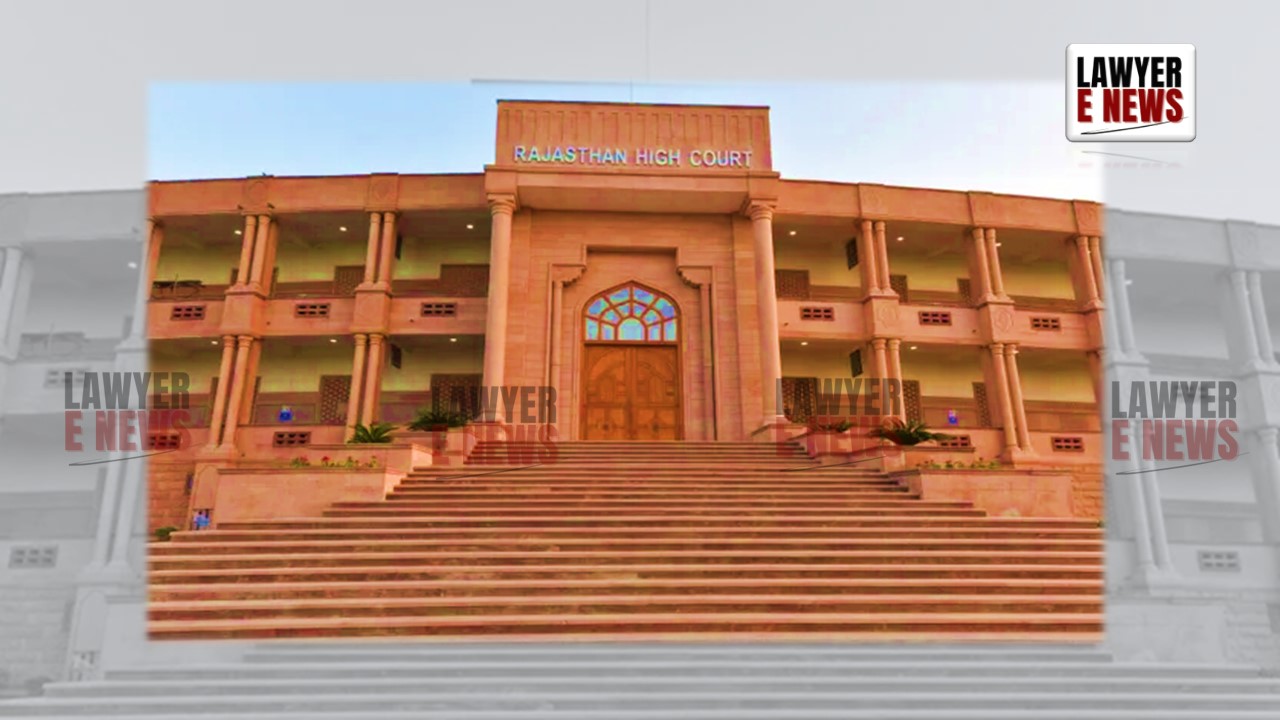-
by sayum
14 February 2026 2:22 PM



“Execution Petition Under Section 31 Not Maintainable,” Rules Justice Rekha Borana
In a significant ruling, the Rajasthan High Court has set aside a 2006 order by the District Judge of Sriganganagar, which allowed the Rajasthan Financial Corporation (RFC) to recover a loan amount from the guarantors of the principal debtor. The court, presided by Hon’ble Ms. Justice Rekha Borana, emphasized that no decree can be passed under Section 31 of the State Financial Corporations Act, 1951, making the execution petition by RFC legally untenable.
The case originated from a loan of Rs. 1,99,000 granted by RFC to Gurucharan Singh for purchasing a truck, with Balvir Singh and Shakuntala standing as guarantors. Following Singh’s failure to repay, RFC sought to recover the outstanding amount from the guarantors’ properties. The application under Section 31 of the Act was decided in favor of RFC on 28.05.1999. Subsequently, RFC filed an execution petition on 02.12.2004 to recover Rs. 13,36,208, later amended to Rs. 6,82,359. Balvir Singh contested this petition, leading to the present revision petition.
Justice Borana meticulously dissected Sections 31 and 32 of the State Financial Corporations Act, 1951. She highlighted that the Act does not empower courts to issue decrees but to enforce the liabilities of the debtor and guarantors through specific procedural mechanisms. The judgment stated, “Section 31 of the Act of 1951 itself is the enabling provision which provides for the complete procedure for enforcement of liability of the principal debtor as well as the surety.”
The court found that the lower court’s decree exceeded the reliefs that can be granted under Section 31. Justice Borana remarked, “No independent/separate execution petition could have been preferred and neither could have the same be entertained by the Court.” The proper course, she noted, would have been to follow the enforcement procedures stipulated within the Act.
The court referenced precedents, including the Supreme Court’s ruling in Maharashtra State Financial Corporation vs. Jaycee Drugs and Pharmaceuticals Pvt. Ltd. And decisions by co-ordinate benches in Peetam Oil and Flour Mill vs. The RFC & Ors. And N.L.P. Organics Pvt. Ltd. & Ors. Vs. Rajasthan Financial Corporation. These cases consistently held that courts could not pass money decrees under Section 31 applications.
Justice Borana stated, “In our opinion, the execution petition as preferred by RFC could not have been maintained as no decree on an application under Section 31(1) of the Act of 1951 could have been passed.” She further elucidated, “Section 31 of the Act of 1951 does not contemplate any decree/money decree.”
The High Court’s ruling underscores the critical importance of adhering strictly to statutory provisions while adjudicating financial recovery cases. By setting aside the lower court’s decree, this judgment reinforces the procedural boundaries within which financial corporations must operate. This landmark decision is expected to guide future litigation involving the enforcement of liabilities under the State Financial Corporations Act, ensuring that statutory procedures are not bypassed.
Date of Decision: 03/07/2024
